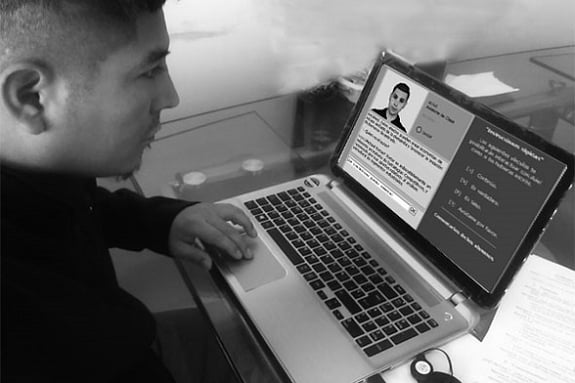An updated top ten list of venture capital resources for life science industry competitive intelligence professionals.
Baidu, China’s largest search engine, recently introduced Melody, an “AI-powered conversational bot designed to provide relevant information to doctors to assist with recommendations and treatment options.” According to a Baidu press release, Melody is designed to save time in online interactions between doctors and patients. The bot incorporates “advanced deep learning and natural language processing (NLP) technologies developed by Baidu” and works in conjunction with Baidu Doctor, a medical app launched in China in 2015.
A chatbot performing healthcare functions is something of a new frontier in medicine. Using bots and other artificial intelligence to handle patient care and assist clinicians offers opportunities for efficiency, cost savings and further technological advancement, but it also raises questions surrounding privacy, security, reliability, and levels of consumer comfort with machine-based, virtual “providers.”
Pros and cons aside, though, the future is now. Melody is already in use, and other AI-based healthcare bots may very well follow. So what, exactly, is this technology? How does it work, and where might we go from here? Read on to learn more about Melody, Baidu’s platform and this new frontier in healthcare.
Here are five things to know about the new Baidu medical chatbot, Melody:
- Melody performs basic triage to assist doctors and patients. The app incorporates sophisticated machine learning technology that enables the chatbot to ask and respond to targeted questions, and to apply the information received in order to guide doctors and patients. As an iMedicalApps post explains, Melody “uses reactive and responsive AI to gather information from the patient and assist doctors’ diagnoses with Baidu’s natural language and learning processing [NLP] systems.” The goal is to aid doctors in making diagnoses, to speed up for patients the process of finding a doctor and booking an appointment, and to ease the overburdened healthcare system in a densely populated country. The app is not intended to replace healthcare professionals, but rather to make their jobs easier.
- The product is informed by its market. As The Verge explains, Baidu developed its doctor platform in response to worldwide shortages of healthcare professionals: seeing an overburdened healthcare system, the company sought ways to find efficient solutions that would allow providers to do their jobs more easily. In addition, the Chinese market—the only market where the app is currently in use—offers hundreds of millions of potential users, creating a large data pool from which the NLP technology can continue to learn and improve.
- Melody facilitates doctor-patient communication. While one of the app’s major benefits is the information provided to doctors to aid their decision making, Melody also enables communication between human doctors and patients. According to CNN, Melody generates a treatment hypothesis that is edited by a human doctor and sent to the patient for review. Not only do patients interact with the bot itself via Q&A, then, they also receive direct feedback from a clinician and can arrange in-person appointments if necessary.
- Melody offers advantages over established online medical tools. Motherboard notes that the app can dive deeper than a site like WebMD, because the interactive tool can incorporate systems from different parts of the body and address nuances within symptoms, gauging frequency and severity, for example. And, of course, there’s also the option to connect directly with a doctor and receive a professional diagnosis, which again surpasses the non-personalized, self-diagnosis-prone realm of consumer-facing medical websites.
- Melody is not the only medical bot on the scene. MobiHealthNews explains that health companies Sensely, HealthTap, and Koko offer chatbot health services. The Verge points to MD and Babylon Health, both of which employ conversational bots to perform basic triage. If these platforms prove successful and popular, others are sure to follow.
Conclusion
Baidu’s chatbot represents an intersection of several key trends in healthcare. Worldwide doctor shortages, overburdened health systems, and inefficiencies in assessment and scheduling present problems, while advances in technology—particularly artificial intelligence and telemedicine platforms—provide opportunities to alleviate or even eliminate many of these issues. As it stands, the technology is intended to support healthcare providers, not replace them.
While it remains to be seen exactly how well medical bots will work and how patients and providers will respond, we certainly seem to be on the cusp of a new trend in healthcare, one that hopefully will solve problems and support effective patient care. For healthcare stakeholders of all types, it will be important to understand and monitor developments in this area.

COMMENTS